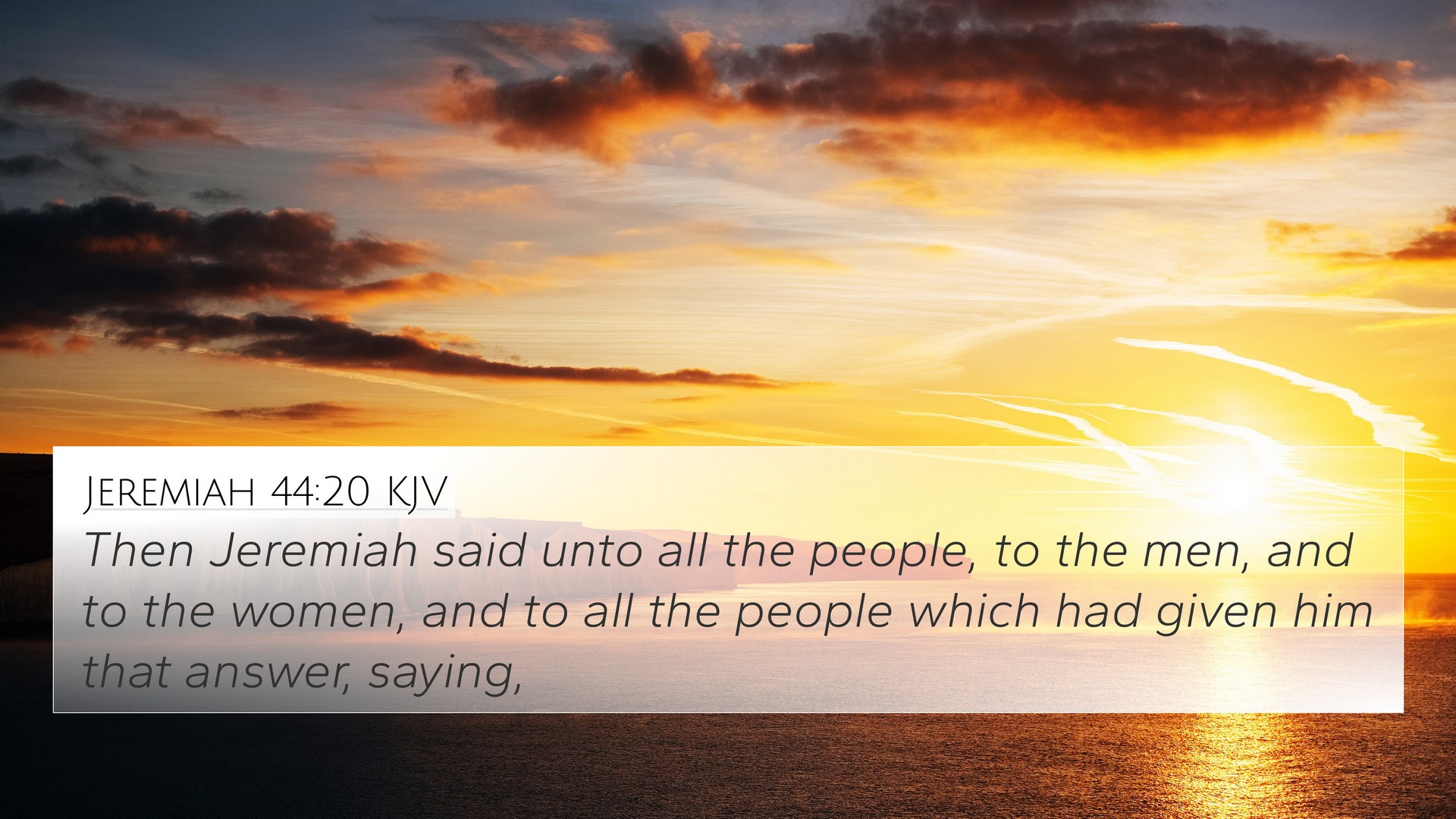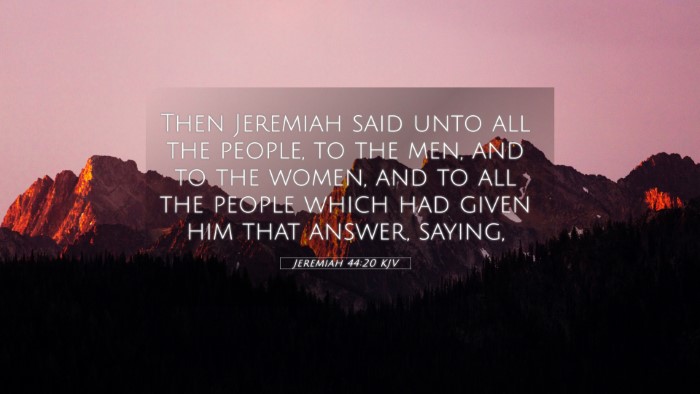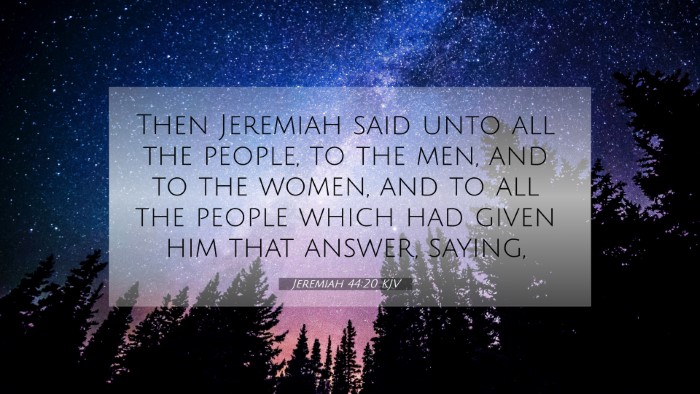Understanding Jeremiah 44:20
Bible Verse: Jeremiah 44:20 - "Then Jeremiah said to all the people, to the men and women, to all the people who had given him that answer."
Summary of Insights from Public Domain Commentaries
This verse provides a crucial context within the narrative of the Book of Jeremiah, where the prophet addresses the people regarding their responses and intentions. The insights from various public domain commentaries illuminate the meaning and implications of this passage.
Insights from Matthew Henry's Commentary
Matthew Henry emphasizes the importance of listening to God's message as conveyed through Jeremiah. The people had sought counsel but were resistant to accepting the warnings about their sinful practices. Henry points out that their unwillingness to heed these warnings exemplifies the challenge of prophetic ministry.
Insights from Albert Barnes' Commentary
Albert Barnes highlights Jeremiah's role as a mediator of God’s word and how he addresses both men and women to signify that God's word applies universally to all people. He notes the significance of the collective nature of their response, suggesting a communal aspect to their rejection of divine counsel.
Insights from Adam Clarke's Commentary
Adam Clarke offers a deeper exploration into the reasoning behind the people's resistance. He notes that they were caught in a cycle of idolatry and disbelief, seeking assurances from false gods rather than adhering to God's directives. Clarke underlines the futility of their actions and the dire consequences that follow from turning away from divine truth.
Connections to Other Scripture
This verse can be understood better when analyzed in conjunction with several other biblical passages. Here are 10 Bible cross-references that relate to Jeremiah 44:20:
- Jeremiah 7:24-26: Illustrates the persistent disobedience of the people despite divine warnings.
- Isaiah 30:9-11: Discusses the people’s refusal to hear the word of the Lord and their inclination to seek comfort in falsehood.
- Deuteronomy 18:20: Highlights the consequences of rejecting a true prophet, reflecting the fate awaiting those who ignore God's message.
- Jeremiah 11:9-10: Speaks to the conspiracy of the people against the obedience to God’s commands.
- Ezekiel 12:2: Addresses the rebellious nature of the people, who do not see or hear the truth.
- Matthew 23:37: Shows the heart of God towards His people who repeatedly reject His prophets.
- Luke 13:34: Reflects Jesus’ lament over Jerusalem's refusal to heed prophetic voice.
- Acts 7:51-52: Describes how the Jewish leaders resisted the Holy Spirit's message, akin to the people in Jeremiah’s time.
- 1 Thessalonians 4:8: Connects with receiving God's word and the implications of rejecting divine instruction.
- Hebrews 12:25: Warns against neglecting the voice of God, resonating with the sentiment of refusal seen in Jeremiah 44:20.
Thematic Connections
This verse encapsulates themes of rebellion, divine warning, and communal accountability—central motifs in prophetic literature. The refusal to obey God not only impacts individual lives but also the broader community.
Conclusion
The meditation on Jeremiah 44:20 uncovers deep layers of meaning regarding the interaction between humanity and divine revelation. By employing tools for Bible cross-referencing, readers can enrich their understanding of scripture and explore how these connections reflect the timeless struggle between divine truth and human disobedience. For anyone engaged in Bible verse analysis, understanding the surrounding context and cross-references can lead to a more profound grasp of the spiritual lessons imparted in these texts.
Reflections
In light of these insights, consider how modern-day practices reflect the same principles of listening to God’s word and responding with faith. The themes of inter-Biblical dialogue resonate as we explore the parallels between Old Testament warnings and New Testament teachings, urging contemporary believers to engage with scripture meaningfully.


